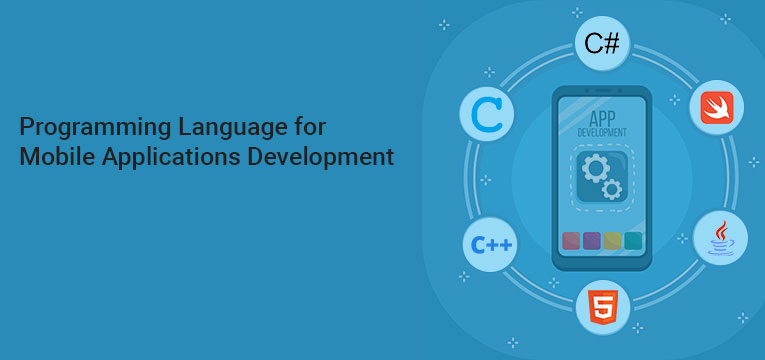Long gone are the days when having a mobile device or a smartphone is only for those who are financially-able and the so-called elite in society. Everyone these days has a smartphone. Today, everyone has a smart device, from students to senior citizens, regardless of age, economic status, social background, and geographical setting.
A gigantic industry today, mobile app development provides a lot of career opportunities for people all over the world. Consequently, the extensive ownership of mobile devices and smartphones has led to the great surge of demand for exceptional and efficient applications.

With the majority of people worldwide now owning mobile phones has eventually led to the gigantic demand for efficient and exceptional mobile apps. To create high-end apps, we need skilled mobile app developers.
For a mobile application developer these days, competition is tough since a lot of people are now venturing into the mobile app market. If you want to outshine and stand out among the rest in the truly promising industry, then you should take into consideration the programming language or languages perfect for developing mobile apps this year and onwards.
Trends, particularly mobile application development has a way of making their presence felt. People gravitate to them easily, exciting imaginations. In the next instance, we now are experiencing them in their entirety.
When it comes to mobile app trends, what we experience would always be better compared to our expectations. They are extremely advantageous in terms of functionality. From a business viewpoint, they are highly productive as well.
Perfect Programming languages for Mobile App Development
1. Swift
Used mainly for developing iOS applications. Before the emergence of native application development, Swift has monopolized the world of iOS development. Objective-C came along, but was not really effective and was ruled out eventually by Swift. Later, Apple made Swift open-source and made it available to the developer community. The language is intuitive and powerful for watchOS, tvOS, macOS, and so on.
Writing code is not just fun but interactive as well. Swift’s syntax is concise but expressive and includes more features that are contemporary that are well-loved by developers. By design, the code is safe, but also produces software that runs on lightning speed. The User Interface of Swift offers numerous features for adding a seamless design to mobile apps.
2. Java for Android
One of the most sought-after and greatly in-demand languages, offering a vibrant array of features. Java is deemed as the best for developing Android applications. Its adherence to the object-oriented paradigm is what makes it dynamic.
Among the numerous traits that work in support of Java are flexibility, portability, platform-independence, and versatility. For cross-platform application development, Java does wonder. Moreover, open-source development tools are extremely efficient.
3. React Native (JavaScript)
Deemed as the cockroach of the IT space. JavaScript, the same as a cockroach, is never expected to die, if not sooner than later. React Native, a Java-based framework site, is used extensively for cross-platform mobile app development. It utilizes the same User Interface components as native Android or iOS applications.
When it comes to functionality, React Native apps are similar to other native apps independently built. An open-source framework, it has a wide community that’s tech-driven. It furthermore offers reusability of code and helps in creating affordable and faster apps. Cross-platform development helps save on coding costs and time.
4. Kotlin
A programming language that’s statically typed, which was developed to reverse Java shortcomings for Android application development. Together, it could be used with Java to make applications that are very efficient and high-performing. Having a simple code and very clean syntax, it is versatile and interoperable.
Kotlin generates a cleaner and compact code than Java. Thus, for Android apps development, it’s the most popular programming language to use.
5. Flutter Framework
A cross-platform development framework, which is based on Dart that’s developed by Google. It equips developers with tools to create both Android and iOS apps with one codebase. A wonderful choice Java-based frameworks that are numberless, which change on a daily basis.
Applications that are Flutter-based moreover are almost identical to the native Android/iOS applications with regards to the look and feel.
6. Dart
An object-oriented, quick paradigm based language used for developing cross-platform applications. Dart could be utilized for writing simple code snippets, as well as completely functional apps. It has a solution for nearly everything under the sun, from developing a desktop application to web application, command-line script, mobile applications, and server-side scripting.
The language comes with a flexible compiler technology that allows you to run code and build as per the requirement of the target audience. It equips developers with Flutter, as mentioned previously.
7. C and/or C++
When it comes to Android development, C++ is deemed as an outstanding option. In the mobile industry, Android-based systems dominate, that’s why expertise in C++ is essential to excel in the domain. What makes C++ a great option is a syntactical analogy with C and C#. Mainly used for developing 3-D games, C++ also complements Objective-C, which make it suitable for developing iOS apps as well, together with saving time and development efforts.
Properties, such as native development kit, exception handling, and Object-oriented paradigm congruity are an add-on that the language offers app developers.
8. C# or C Sharp
Another object-oriented programming language, which is comprehensively utilized for the development of mobile apps. C# is mainly used for windows mobile platform, and another attribute to it is cross-platform development, making it suitable for developing mobile apps. Technically, it lets app developers do pretty much anything and everything, which could be achieved with Swift, Objective-C, and Java.
Once you familiarize yourself with C#, you could code easily, as well as develop mobile apps, games, desktop applications, and web apps. Considering therefore the dynamism that it offers, it’s one of the top choices for application developers.
9. Xamarin
An open-source, free cross-platform mobile application development framework to build apps with C# and .NET. It extends the developer platform of .NET through facilitating users to access technologies and tools for Android, Windows app development, and iOS.
Directly, the framework further provides functionality for invoking programs coded in other languages, including Java, Objective-C, C++, C libraries, which let you use a huge range of third-party code.
10. Ionic
For creating cross-platform mobile app, Ionic is an open-source framework. It is used for building high-quality, performant mobile and desktop applications with web technologies, such as CSS, HTML, and JavaScript, with integrations for the popular frameworks, namely, React and Angular.
It’s the perfect choice for developing hybrid mobile applications. It’s an open-source software development kit that makes use of a platform-centered User Interface. In addition, it’s the single mobile application stack that enables web developers to build applications for all the major app stores, as well as a mobile web from only one codebase.
CONCLUSION
Undeniably and without doubt, new technology in the field of mobile app development is impacting just about any industry and marketplace. Whatever a brand may be selling, or the services on offer, developing a mobile app is paramount for any brand or business, which demonstrates business values.
The list above consists of the ten perfect programming languages that developers could use for developing mobile apps in 2020 and onwards. To join the promising full of opportunity industry, you should seriously consider these languages and choose the one that best fits your requirements and goals.
In the mobile application market, cross-platform development is trending technology. People would always want quality, together with effort-reduction and time-efficiency that could be achieved through doing cross-platform development in which you could build applications the same to native apps with the same codebase.




